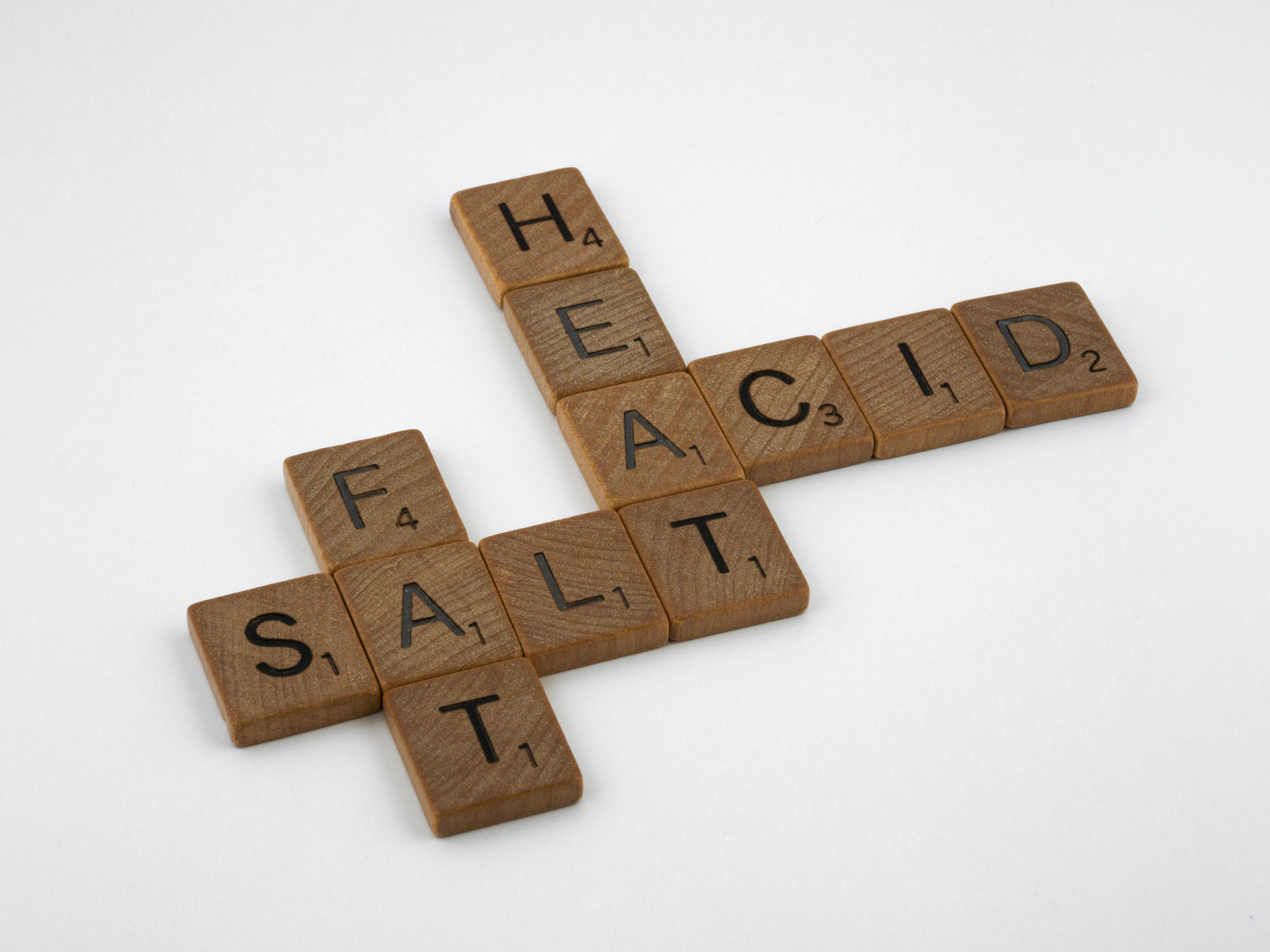Taurine is an amino acid that occurs naturally in our bodies and is also found in certain foods. Taurine plays a multifaceted role in improving athletic performance and promoting heart health. It helps reduce muscle fatigue and regulates calcium levels, reducing the risk of muscle cramps and injury during physical activity. Additionally, its antioxidant properties and positive effects on blood pressure and cholesterol levels make it an important nutrient for maintaining heart health.
Taurine, or 2-aminoethanesulfonic acid, is a naturally occurring organic acid and sulfamic acid found in large amounts in various tissues throughout the body, especially in the brain, heart, and muscles. Plays a vital role in various biological processes in the human body. Like glutamate and proline it is classified as a conditional amino acid, which means that although it is not considered essential, under certain conditions, such as during growth, stress, or injury, it becomes essential.

The word "taurine" is derived from the Latin taurus, and despite its name, it is not derived from bulls or bull urine as is commonly misunderstood. In fact, it’s abundant in a variety of sources, including meat, seafood, dairy, and more.
Although taurine is often associated with energy drinks, it has many more important functions besides providing energy. Taurine is involved in regulating hydration and electrolyte balance. It helps support the movement of ions such as sodium, potassium, and calcium across cell membranes. This is essential for maintaining normal cell function, especially in tissues such as the heart and muscles.
While taurine occurs naturally in some foods, some people may have limited intake or may require additional supplementation due to certain conditions or insufficient dietary intake. Taurine supplements come in many forms, including capsules, tablets, and powders.
1. Improve heart health and regulate blood sugar
One of the major health benefits of taurine is its ability to support a healthy heart. Taurine helps lower blood pressure and control cholesterol levels, effectively reducing the risk of various cardiovascular diseases. According to a review published in Amino Acids, animal models show that taurine helps prevent the formation of fatty plaque in arteries and clears plaque buildup from arteries, thereby reducing the risk of heart attacks and strokes.
Taurine also regulates blood sugar levels. Research shows that taurine supplementation may help improve glucose metabolism and insulin sensitivity, benefiting people with diabetes or those at risk for developing diabetes. By helping regulate blood sugar levels, taurine may also aid in weight management and prevent obesity.
In addition, taurine’s antioxidant properties help protect the body from oxidative stress and damage caused by free radicals. Oxidative stress is associated with a variety of chronic diseases, including cardiovascular disease, diabetes, and neurodegenerative diseases. By neutralizing free radicals, taurine can potentially reduce the risk of these diseases.
2. Promote eye health
Our eyes are often affected by modern lifestyle choices, such as excessive screen time and prolonged exposure to blue light. Taurine can act as the knight in shining armor for our eye health.
Research shows that taurine, found in high concentrations in the retina (the light-sensitive layer at the back of the eye), protects the retina from oxidative damage and helps prevent a variety of eye-related diseases, including cataracts and age-related macular degeneration. AMD is the leading cause of vision loss in older adults. Its antioxidant properties help minimize oxidative stress and prevent damage caused by free radicals, promoting eye health in the long run.
3. Improve athletic performance
For athletes and fitness enthusiasts, taurine has specific advantages. At present, taurine has become a commonly used sports supplement. Athletes and fitness enthusiasts hope that it can improve sports performance and enhance endurance.
Studies have shown that taurine can act as an oxidant and prevent exercise-induced DNA damage, and animal research models have also found that taurine can help prevent exercise-induced muscle damage and increase fat burning.
Additionally, this amino acid plays a vital role in maintaining healthy muscle function. It helps regulate calcium levels, which are essential for muscle contraction. Taurine supplementation has been linked to improved exercise performance and reduced muscle fatigue. It also helps reduce muscle damage from strenuous physical activity, ultimately improving recovery rates.
4. Helps anti-aging
Recent animal studies have found that taurine supplementation improves the function of mitochondria (often called the powerhouses of the cell because they produce energy in the form of adenosine triphosphate (ATP)), reduces DNA damage, and improves the cell's ability to sense nutrients.
Additionally, oxidative stress, caused by an imbalance between the production of free radicals and our body’s ability to neutralize them, is a fundamental factor in aging. Taurine has oxidative properties that act as an antioxidant, neutralizing and scavenging free radicals, thereby reducing oxidative stress and potential damage to cells and tissues.
Although research shows that taurine has the potential to improve health and fight aging, more research is needed to fully understand its mechanisms and confirm its effectiveness.It is undeniable that exercise can increase the level of taurine, which helps anti-aging and improve human health.
5. Support digestive health
Digestive problems have become increasingly common in recent years. Taurine can relieve problems like acid reflux and indigestion. By supporting the production of bile salts, taurine helps break down dietary fats more efficiently, allowing for smoother digestion. Additionally, this amino acid helps maintain proper gut health by promoting the growth of beneficial gut bacteria, improving nutrient absorption, and reducing the likelihood of gastrointestinal disease.
Best food sources of taurine
1. Seafood: Fish and shellfish are excellent sources of taurine. Salmon, mackerel, sardines and shrimp are particularly high in this beneficial amino acid. Consuming two to three servings of seafood per week will ensure you are getting enough taurine.
2. Meat and poultry: Animal proteins, such as beef, pork, and chicken, also contain taurine. Choosing lean cuts of meat and cooking them in a healthy way, such as grilling or baking, can help preserve nutritional value while limiting excess fat.
3. Dairy products: Dairy products such as milk, cheese and yogurt contain moderate amounts of taurine. Additionally, they provide a variety of other essential nutrients, making them a valuable addition to a balanced diet.
4. Eggs: Eggs are not only a great source of protein, but they are also rich in taurine. Add eggs to your breakfast or incorporate them into your favorite recipes to enjoy their nutritional benefits.
5. Algae: Although often overlooked, certain types of algae, such as seaweed, are rich in taurine. Consider incorporating them into your diet in the form of sushi, salads, or nutrient-dense seaweed snacks.
6. Legumes: Legumes such as beans, lentils and chickpeas contain small amounts of taurine. While taurines are not as high in taurine as those found in animal sources, they provide an alternative for people following a vegetarian or vegan diet.
7. Energy drinks or supplements: Some energy drinks and supplements also contain taurine. However, it's worth noting that relying solely on these sources may not be ideal or healthy, as they often contain additional ingredients that may have negative consequences if overconsumed.
Taurine:
Taurine is an amino acid that plays an important role in various physiological functions of the human body. Although it is produced naturally in our bodies, we can also find it in dietary sources such as meat, fish, and some energy drinks. Taurine is essential for regulating electrolyte balance, supporting cardiovascular health, aiding nervous system function, and promoting healthy brain function.
Research suggests taurine may have antioxidant properties that may protect cells from damage caused by harmful free radicals. It may also have anti-inflammatory effects, potentially reducing the risk of chronic diseases such as heart disease and diabetes.
Additionally, taurine has been linked to improved exercise performance and muscle recovery due to its role in regulating calcium levels in muscle tissue. Athletes and individuals who engage in strenuous physical activity often supplement with taurine to increase endurance and reduce muscle soreness. 
Magnesium Taurate is a combination of the essential minerals magnesium and taurine. As an important nutrient for the human body, magnesium participates in more than 300 biochemical reactions. It is essential for bone health, energy production and normal nerve function. Taurine combines with magnesium to enhance its absorption and bioavailability.
The combination of magnesium and taurine in magnesium taurate is thought to provide additional benefits compared to magnesium supplementation alone. This unique compound is often recommended for people with cardiovascular health problems, such as high blood pressure and irregular heartbeats. Some studies show that magnesium taurate can help regulate blood pressure and support overall heart health.
Magnesium taurine may help reduce stress and promote relaxation, as both magnesium and taurine have sedative properties. It may help combat anxiety, improve sleep quality, and relieve symptoms of depression. Additionally, magnesium is involved in glucose metabolism, so magnesium taurine may be beneficial for individuals with type 2 diabetes or insulin resistance.
Numerous studies show that consuming taurine is safe, even when taken regularly. But to minimize potential side effects and maximize benefits, it's crucial to consume taurine in moderation and choose high-quality, trustworthy sources. By consulting a healthcare professional, choosing trustworthy sources, and practicing moderation, you can ensure a safe and positive experience with taurine consumption.
Q:Does taurine have any impact on heart health?
A:Yes, taurine plays a vital role in maintaining heart health. It has been found to improve cardiac function, regulate blood pressure, and reduce the risk of cardiovascular diseases. Taurine acts as an antioxidant, protecting the heart from oxidative stress, and also supports the production of essential compounds that promote cardiovascular health.
Q:Can taurine be obtained through diet alone?
A:Yes, taurine is naturally present in various food sources such as seafood, meat, poultry, and dairy products. A well-balanced diet can provide adequate amounts of taurine for most individuals. However, some athletes or individuals with specific dietary restrictions may consider taurine supplementation after consulting with a healthcare professional.
Disclaimer: This article is for general information only and should not be construed as any medical advice. Some of the blog post information comes from the Internet and is not professional. This website is only responsible for sorting, formatting and editing articles. The purpose of conveying more information does not mean that you agree with its views or confirm the authenticity of its content. Always consult a health care professional before using any supplements or making changes to your health care regimen.
Post time: Oct-19-2023






